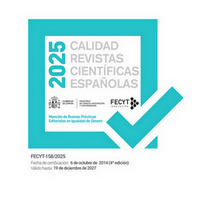The defense of absolutism in the reign of Fernando VII: Antonio Gómez Calderón, regent of Spain
DOI:
https://doi.org/10.24197/ihemc.41.2021.663-698Keywords:
Absolutism, Old Regime, Fernando VII, Biography, Antonio Gómez CalderónAbstract
Antonio Gómez Calderón, a prestigious lawyer in Madrid during the transition from the 18th to the 19th century favored by the absolutist monarchy, firmly rejected the liberal system during the Peninsular War; in fact, he supported absolutism as a trustee of the Madrid City Council, a deputy in the Cortes and signatory of the Manifesto of the Persians. His position earned him the gratitude of Fernando VII in 1814, who appointed him as prosecutor of the Council of the Indies. Exiled in France after the reestablishment of liberalism in the Liberal Triennium, he did not give up on his reactionary ideas and plotted for the return of absolute power. In 1823 he accompanied the Hundred Thousand Sons of Saint Louis in their invasion of Spain as a member of the institutions created for the government of the country, the Provisional Board and the Regency, and because of it Fernando VII rewarded his loyalty Fernando VII with his consolidation in the national political elite during the Ominous Decade. Gómez Calderón represents a paradigmatic example of the members of the high administration of the State of realistic tendency (among which the ministers López Ballesteros, Calomarde, and others were) whose work of propping-up of absolutism contributed to the continuity of the Old Regime in Spain longer than in other Western European countries. So, with this work we will make a contribution of historiographical interest to understand the aforementioned persistence and the delay in the definitive introduction of the liberal alternative.
Downloads
Downloads
Published
Issue
Section
License
All the articles published in Investigaciones Históricas, época moderna y contemporánea will have a Creative Commons Attribution 4.0 International License (CC BY 4.0).
The journal allows the authors to retain publishing rights. Authors may reprint their articles in other media without having to request authorization, provided they indicate that the article was originally published in the journal Investigaciones Históricas, época moderna y contemporánea.



